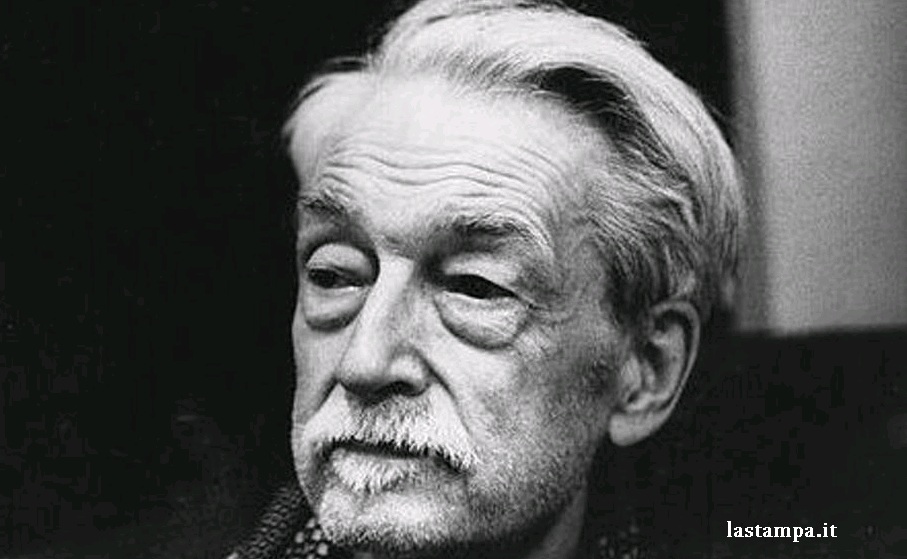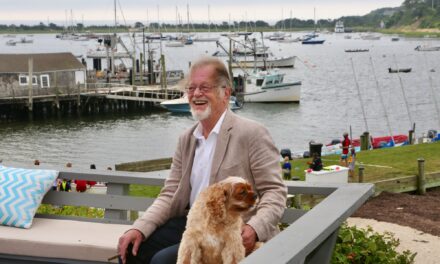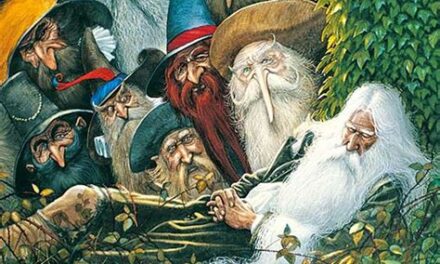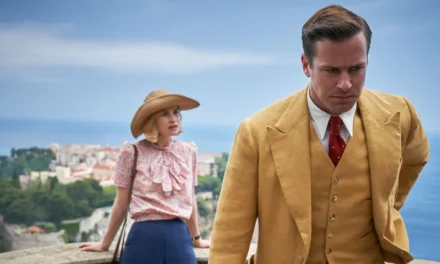Creative Intuition in Art and Poetry is one of Maritain’s greatest written achievements, not for any new direction in his thinking, but for his deepening insights into the question about creativity, posed nearly twenty years earlier. In “The Experience of the Poet” (1938) he asked, “Why is the percept [object] of poetic experience non-conceptualizable as such, why is it, as distinguishable from the percept of contemplation, not ordered to knowing but to being expressed in a work, to being cast into being? Why is it rather a source of creative activity than termination in objective union” (TSP 72)? Maritain’s final answer in Creative Intuition directs him toward the deepest recesses of human subjectivity.
We should not mistake this for a strictly psychological turn. For Maritain, the human subject, whose primary power is intellectual, contains an infinite depth. “A subjectivity is a spiritual subsistence and existence, which are radically active, sources of the super existence of knowledge and the superexistence of love . . . a universe unto itself, a universe of productive vitality and spiritual emanation” (TSP 72-73).
The notion of subjectivity provides the metaphysical backdrop of Creative Intuition and ensures that Maritain’s use of psychological categories will not be mistaken for an “aesthetics-from-below.” Existence and the Existent was written almost exactly midway between his essay on the poet’s experience and his Mellon Lectures. Here he argues that what makes human subjects unique, different from all others—what makes them persons—is freedom. A person “acts by setting itself its own ends” (EE 68). It is no coincidence that this echoes what has been said about the freedom of artists toward their art.
In defending their freedom Maritain defends all of human freedom from the temptations of moralism, intellectualism, and pragmatism, each demanding an exclusive devotion. The privilege of artists, anchored in the virtue of their art, is that they can step out of themselves and create an other, which has its own ontological reality. Therefore, artistic creation, like God’s does not issue from necessity but from love. “Only by love does it [subjectivity] attain to its supreme level of existence—existence as self-giving.” The artist reaches into the fullest expression of the human subject: “it is better to give than to receive” (EE 83).
By giving us beautiful things, artists are given a privileged knowledge of themselves, akin to that belonging to mystics. Poetry grasps both the stuff of the world and the inner world of the self. Thus, poetic knowledge provides a fragmentary, though real, look into the subject through the created work (EE 71). Subjectivity cannot be contained in a concept because it is fully knowable only as a subject and not as an object. Therefore, a subject can be fully known only by God (EE 73), but poetry approximates that knowledge, touching the “transcendent subjectivity to which all subjectivities are referred” (EE 76). Maritain’s exploration of poetry sub“jectivity and creativity leads him to discover a spiritual connection within the self that he earlier found in the world: “The artists, whether he knows it or not, consults God in looking at things” (AS 61).
This universe within the self Maritain calls the “spiritual unconscious or preconscious” Maritain’s explanations of it have a metaphorical quality that gives the impression he is operating beyond the limits of any strict philosophical vocabulary. Perhaps this is appropriate since Maritain thought that subjectivity defied conceptualization. The spiritual preconscious lies so deeply within the human subject that recourse to a metaphor is necessary. Plato, who was never averse to coining a philosophical metaphor, uses the name Muse (mousiké) to talk about the origins of knowledge. For Maritain, the declared task of Creative Intuition is to place the Platonic Muse within the human intellect and imagination. Inspiration “from above the soul becomes inspiration from above conceptual reason, that is, poetic experience” (CI 91).
“The tendency for modern art to pursue knowledge in the place of making typifies, in Maritain’s mind, its problematic relation to the intellect. Still, modern art is no different from the rest of modern culture, where the exercise of intelligence has gone away. Integral Humanism, Three Reformers, and the Dream of Descartes are among Maritain’s books that attempt to address the broader problem of modern reason, but in less forgiving terms. Arthur R. Evans observes,
“And so, we have this duality: on one hand a tolerance, nay a sovereign permissiveness in all that has to do with the artistic creation; in Maritain’s best if all possible worlds, unlike Plato’s, the poets hold court; on the other hand, an intolerable, an overbearing exclusiveness in all that pertains to the life of reason. In the discourse of philosophia perennis, Maritain will permit no dialogue. Sympathy: dogmaticism. Why should this be? Is the answer to be found in the differing nature of the two orders of the mind?”
Evans’s suggestion is the right one. Artists are under no compunction to conform to their work to any set pattern: their only obligation is to work “honestly” for beauty’s sake. Philosophers cannot claim the freedom of the artist to conceive of anything they please. “Truth,” according to Saint Thomas, “follows from the being of things.” Using this principle of Thomistic realism, Maritain would naturally be more demanding of modern philosophers, many of whom have been guilty of idealism.
In Maritain’s The Peasant of the Garonne modern phenomenology is dismissed as “ideosophy” because of its unrepentant devotion to the Cartesian substitution of ideas for reality. Another reason for his severity may lie with the preference for clarity and simplicity in the expression that Wallace Fowlie mentions. The often ponderous terrain of Husserl, Heidegger, Sartre, and others surely had little appeal for someone with such a strong affinity for the musical textures of Erik Satie and “Igor Stravinsky. The question deserves discussion at length. A thorough perusal or Maritain’s texts may yield some as yet unnoticed parallels to his view of modern art. Maritain, it should be remembered, was able to meet Henri Bergson “halfway.”
It is no exaggeration to say that Maritain sees more hope for the intellect in modern art than in modern philosophy. “Modern art longs to be freed from reason (logical reason)” (CI 71)—that is, the stunted and diminished reason left in the wake of Descartes. “Descartes, with his clear ideas, divorced intelligence from mystery” (CI 162). Because it has been “bitten by poetry” (CI 72), modern art opens the way, once again, to the unconscious recesses of intuitive knowledge, where, as was shown earlier, the human subject verges on the mystery of the divine subject.
Of course, the bite of poetry is not without its dangers. The rejection of reason by the surrealists is Maritain’s prime example (CI 80). They helped to open the preconscious intellect but turned poetry into a “craving for magical knowledge” (CI 184). The failure of their attempt, as in Rimbaud’s desire to become a seer, spills out into irrationalism or simple silence: “He ceased to write” (CI 186). Poetry cannot be twisted towards the conceptual without eventually shutting off the imagination from the sources of its images.
Surrealism took the poetic quest for absolute knowledge to its limit, dismissing beauty for the sake of truth. Maritain calls the result “magic” because the knowledge that is gained cannot conform to any of the logical rules, such as the principle of non-contradiction. Magical knowledge obeys its own “law of images” (CI 188), which, of course, retains only a private meaning. As a consequence, the surrealists had to rely on occult means and, finally, the force of their personalities to make their “truth” persuasive.
Any claim of truth that cannot be rationally discussed in public depends for its power upon the person who utters it. To make their “truth” known, the surrealists further inflated the artistic ego, a strategy instigated by Rousseau, so that the devotion to “knowledge” obliterated the self-forgetting love of the work. For Maritain, the consequences have not been entirely destructive. Modern art is
“the spiritual advent, not of the self-centered ago, but of creative subjectivity. . . . The basic significance of modern art lies in this advance, and in the effort to discover and penetrate and set free the active mystery of poetic knowledge and poetic intuition. There would be no more unfortunate error than to mistake the wounds from which modern art is suffering for the substance of the élan that they threaten and mask” (CI 195).
End of Part Three














